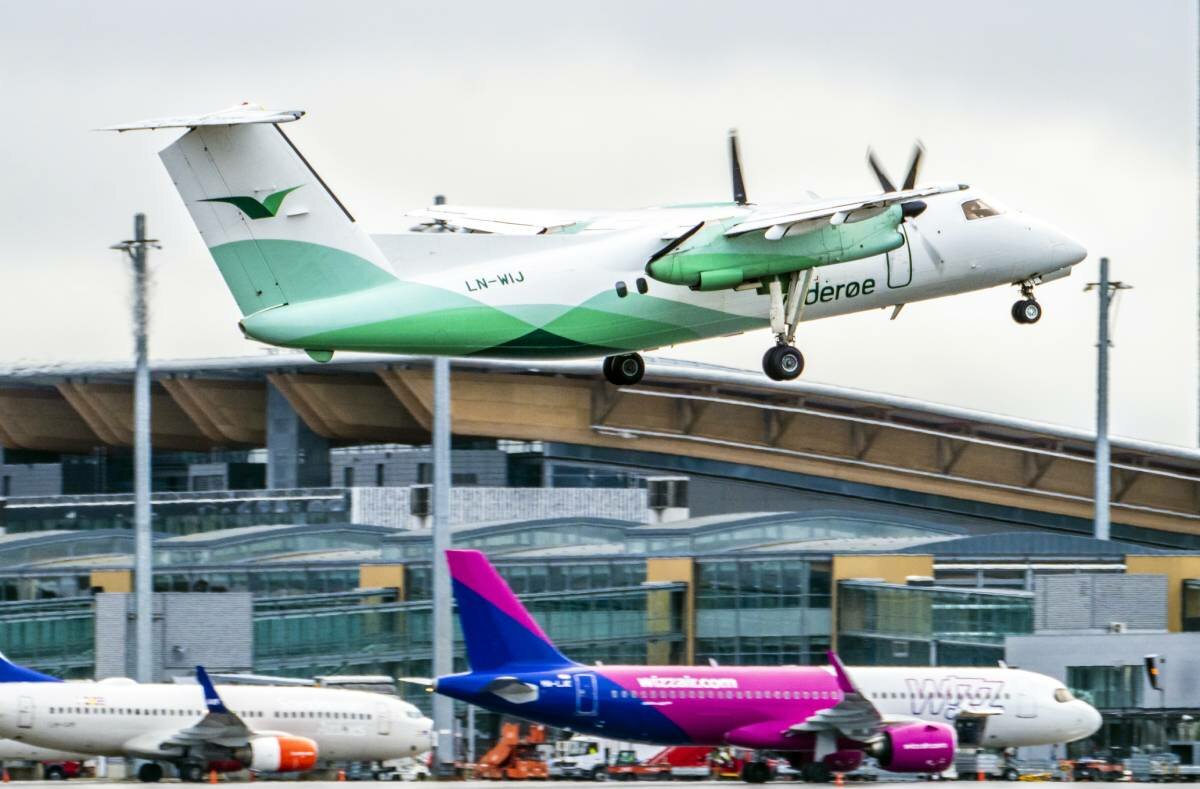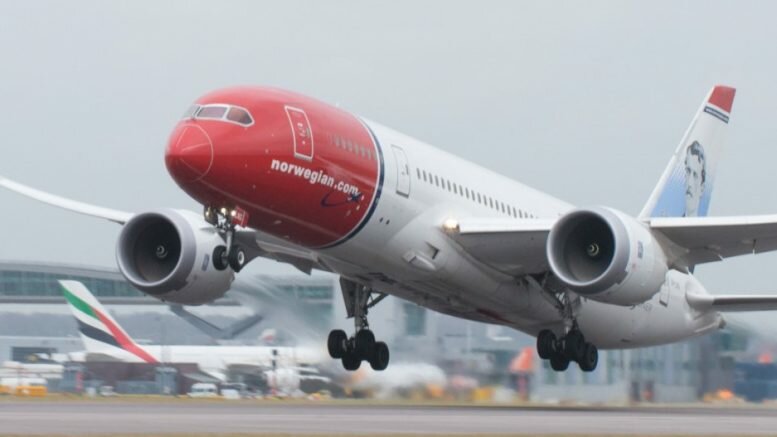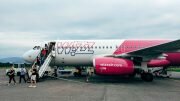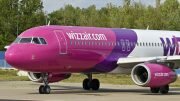From June 14, Wizz Air no longer flies domestically within Norway, less than 8 months since its operations here began. The low-cost Hungarian carrier has been a controversial newcomer to the domestic airline industry. It has been in constant legal battles with Norwegian authorities, the government, and unions since flights took off here last November. With a travel-hungry public waiting for the country to open up, just why did Wizz Air fly off on the cusp of a busy summer season? Was it forced out by a lack of financial government support suspicious of foreign competition in a protectionist market? Or did it possess an unsustainable and exploitative business model, very much against the ethos of business in Norway?
Domestic Norwegian operations “not financially sustainable”
Due to the travel restrictions, closed borders, and social lockdowns Norway has experienced in the past year, it is no wonder that the airline industry is in a precarious situation. Wizz Air’s decision to pull out of the Norwegian domestic market was made for, it claimed, purely financial reasons. It cited “unfair market conditions” as the reason for its lack of financial sustainability in its domestic Norwegian operations.
These “conditions” are a thinly veiled swipe at the Norwegian government’s economic assistance to the airline industry. It felt it had received no government financial assistance unlike the majority of airlines operating within Norwegian borders, most notably Norwegian Air Shuttle. Though the government had financially assisted Norwegian last year, and the broader airline industry, it has since refused further Norwegian requests for government support. When it comes to direct subsidies, Widerøe is the most heavily government-supported domestic airline (mostly due to the national priority of servicing smaller airports nationwide).
Financially well placed, wanted no state support
That Wizz Air would cite purely economic and political reasons for its rapid collapse is almost comical. This was a company that, in March 2020, had the largest liquid reserves of any European airline group. An article by the Center for Aviation (CAPA) showed that Wizz Air possessed some EUR 1.5 billion in cash reserves. Furthermore, as Wizz Air launched domestically in Norway in November last year, CEO József Váradi gave an interview to CITYAM. It was during this interview that Váradi talked about not only the complete short time self-sufficiency of his company but that it would reject any offer of state aid.
Here we are now, some 7 months later, where Wizz Air’s decision to cease domestic operations, in Norway, blamed on unfair and uncompetitive market conditions. Yet this was a company whose CEO publicly rejected any offers of state aid and was also one of the strongest financially placed airlines in Europe to cope in the heavily travel restricted COVID era. So, if it wasn’t for financial or economic reasons, why then did Wizz Air cease its Norwegian domestic operations?

Pricing strategy led to first signs of trouble
When Wizz Air entered the domestic market, they had high hopes. Having operated from Norway for 15 years, it felt that 2020 was the year to expand its operations into the Norwegian domestic market. While that year was the nadir for many Norwegian-based airlines, Wizz Air felt it had the financial security, and business model, to prosper well within Norway. However, this business model was not, many experts and industry insiders argued, suited to the Norwegian market.
Much of the early fanfare it secured was about its ridiculously (relatively speaking for Norway) low prices. A NOK 199, fare, from Oslo to Bergen, Tromsø, or Trondheim illustrated its desire to start a price war in a race to the bottom. This led to the Norwegian Pilots Association pushing for a minimum fare price within Norway. Though some opposition parties pushed for an inquiry into minimum pricing, the official government policy was that airlines are free to decide pricing based upon free-market regulation in the European Economic Area (EEA)
So, already before one of their planes had taken off, Wizz Air’s business model had both been the subject of public debate and raised the ire of organized labor. Still was just the start though, things then only took a turn for the worst.
Union troubles, boycotts, and PM condemnation not good for public image
Perhaps the single biggest issue that Wizz Air had entering the domestic market here was labor laws. From the very onset, it had been described, by its CEO, as “an airline without unions.” This was a comment that almost, single-handedly, lost the public relations battle in Norway. By mid-October 2020, there was a growing movement for a public and private boycott of Wizz Air. Private companies (such as Industri Energi and Nito) had placed a ban on their employees from flying with Wizz Air as well as several unions (among them the Lederne Union and the Confederation of Vocational Unions).
The fear was that Wizz Air would employ staff in countries in Eastern Europe then shuttle them back and forth, to be based in Norway for a maximum of 3 months, thereby circumventing strict Norwegian labor laws. Leader of the Norwegian Pilots Association, Yngve Carlsen, summed this fear up best in an interview with E24 when he stated that “Wizz Air exploits loopholes in European legislation, when they establish a base in Norway and fly in personnel who keep their Polish or Hungarian salaries.”
Perhaps there was no more damning a comment than when Prime Minister Erna Solberg stood up in the parliament (Storing) and said that she supported a boycott of a company that did not let its workers organize. She said that under Norwegian law, to which Wizz Air adheres to within its domestic operations, workers have a right to organize. She felt it was not proper for her to fly on an airline that did not have “proper…working conditions for their employees.”

Took a gamble on the fate of Norwegian; lost, left it in an increasingly crowded marketplace
Many industry insiders felt that Wizz Air had gambled on the bankruptcy of Norwegian Air Shuttle…and lost. Going into 2020, Norwegian faced very demanding circumstances. The huge discrepancy in financial reserves between Norwegian and Wizz Air was one of the reasons that Wizz Air decided to enter the domestic market here in 2020.
Norwegian had spent the majority of 2020 seeking support from the government and desperately seeking new injections of capital. Eventually reaching a deal with a Chinese led investment company, Norwegian survived to fly another day. Many in the industry though felt that Wizz Air’s timing of their move into Norway was based on an assumption that Norwegian would flounder and Wizz Air could scoop up its market share. Ynge Carlsen stated, to E24, that he felt “the real motive is probably…that Wizz Air’s establishment was based on a premise that Norwegian would not succeed.”
This marketplace became even more crowded as a new company, Flyr, announced it would start domestic operations by summer 2021. So now those travelling within Norway could choose between 5 different airlines. Unlike Wizz Air, Flyr had announced via its website that it was “an aircraft fleet, organization, and business model intended for the Norwegian market.” This was very much seen as a swipe against Wizz Air which, like Ryanair before it, was not the first foreign European airline that a traditionally Euro-sceptic Norwegian public did not grow to love.
Lost the PR war and legal issues
All publicity is good publicity, or so the expression goes. Wizz Air’s domestic operations in Norway prove they are definitely the exception to this rule. From the announcement of its intentions to fly domestically within Norway, there has been an almost comical series of public relations disasters.
Wizz Air was seen as a threat to the Norwegian business model, Norwegian labor laws, and, finally, a potential biohazard. Oslo City Council chief Raymond Johansen (AP) had described Wizz Air planes, flying from Poland to Norway, as “potential contagion bombs” and “super spreaders” in an interview with DN in November 2020. This was followed by the closing of its Trondheim base just 3 months after operation.
Though Wizz Air ceased its domestic operations in Norway on June 14, it will still have a presence in Norway…mainly in the courtroom. It has several ongoing lawsuits against several municipalities and counties nationwide, most notably Agder county.
In the space of just over half a year, Wizz Air will cease its domestic operations here in Norway. Wherever they expand next, and I have no doubt they will expand, let this period be a lesson for them. Just because a business is successful in one country, or region, doesn’t automatically make it successful in another. The adaptation and adjustment of a business to a particular market, country or society, is vital for its ongoing success. As Wizz Air bids adieu (or should that be “Viszontlátásra“) to the domestic Norwegian market, it seems few people here will be disappointed.
The opinions expressed are those of the author and are not held by Norway Today unless specifically stated.
About the author:
Jonathan is a lover of the written word. He believes the best way to combat this polarization of news and politics, in our time, is by having a balanced view. Both sides of the story are equally important. He also enjoys traveling and live music.
Source: #Norway Today / #NorwayTodayNews
Do you have a news tip for Norway Today? We want to hear it. Get in touch at [email protected]






Be the first to comment on "Jetting off with heavy baggage: Wizz Air’s troubled time within Norway"